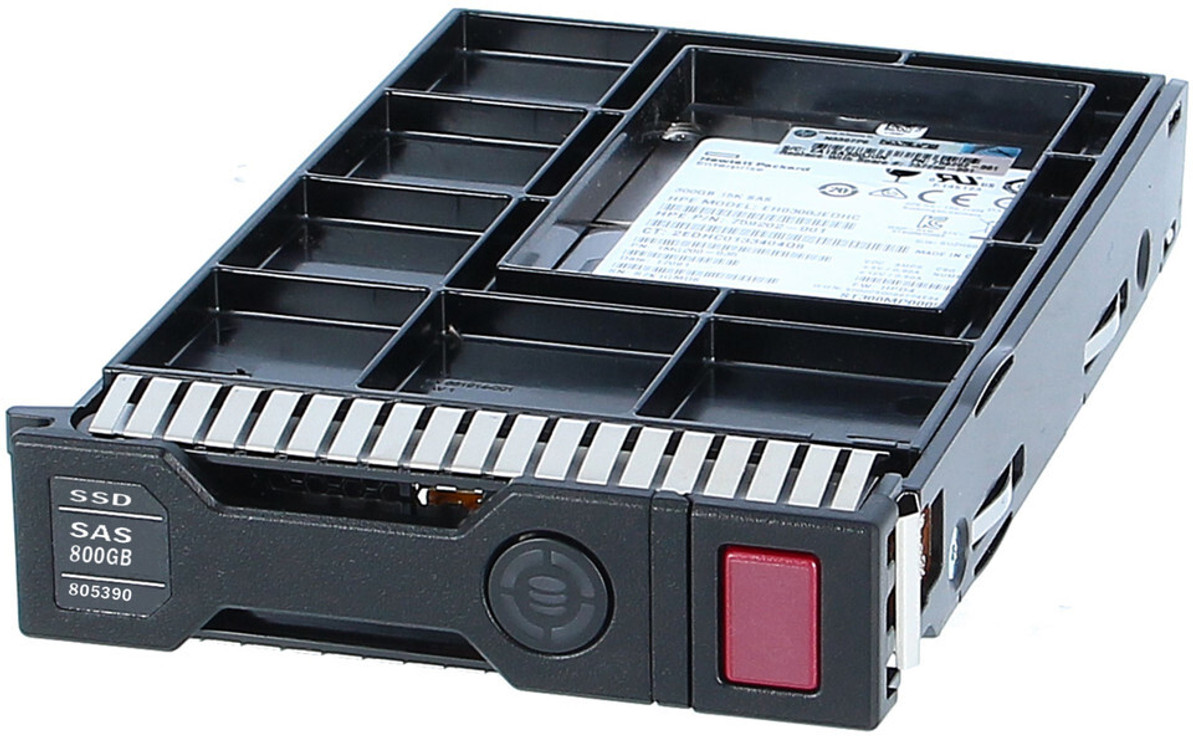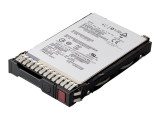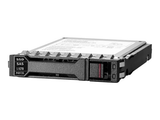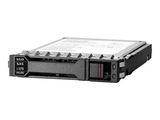Empowering Enterprise Storage: The HPE 800GB 3.5-Inch LFF Write Intensive SSD for ProLiant Gen9 and Gen10 Servers
The HPE 800GB 3.5-inch Large Form Factor (LFF) Power Loss Protection (PLP) Digitally Signed Firmware (DS) SATA-6Gbps Smart Carrier Converter Write Intensive-2 (WI-2) Solid State Drive (SSD) is a high-performance storage solution designed for Hewlett Packard Enterprise (HPE) ProLiant Gen9 and Gen10 servers. Tailored for write-intensive workloads, this SSD combines enterprise-grade Multi-Level Cell (eMLC) NAND technology with advanced features like Power Loss Protection and a Smart Carrier Converter, ensuring reliability, security, and efficiency. This article provides a comprehensive overview of its specifications, features, benefits, compatibility, and use cases, offering IT professionals a detailed guide to its capabilities.
Overview
The HPE 800GB LFF SSD (part numbers include models like 870144-B21, 870343-001) is engineered for demanding enterprise environments, delivering robust performance for applications such as databases, virtualization, and big data analytics. Its 3.5-inch LFF form factor with a Smart Carrier Converter ensures compatibility with server bays designed for larger drives, while the SATA-6Gbps interface provides high-speed data transfers. Features like PLP and digitally signed firmware enhance data integrity and security, making this SSD a reliable choice for mission-critical operations.
Technical Specifications
Hardware Specifications
Device Type: Solid State Drive - Hot-Swap
Capacity: 800 GB
Form Factor: 3.5-inch Large Form Factor (LFF)
Interface: SATA 6Gbps
NAND Flash Memory Type: Enterprise Multi-Level Cell (eMLC)
Plug Type: Hot-Pluggable
Carrier Type: Smart Carrier Converter (SCC)
Workload Type: Write Intensive-2 (WI-2)
Height: 15 mm (0.6 inch)
Bytes per Sector: 512
Performance Metrics
Drive Transfer Rate: 6 Gb/sec (external)
Sequential Read Throughput: Up to 530 MB/s
Sequential Write Throughput: Up to 400 MB/s
Random Read IOPS (4KiB, Q=16): 65,000
Random Write IOPS (4KiB, Q=16): 25,000
Max Random Read IOPS (4KiB): 72,000 @ Q32
Max Random Write IOPS (4KiB): 25,000 @ Q4
Random 70% Read / 30% Write (4KiB, Q=32): 46,000 IOPS
Random 50% Read / 50% Write (4KiB, Q=32): 36,000 IOPS
Average Latency (Random Read): 100 µs
Average Latency (Random Write): 45 µs
Endurance (Drive Writes Per Day, DWPD): 3.0
Total Bytes Written (TBW): Approximately 4380 TB over 5 years
Power and Environmental Specifications
Power Consumption (Idle): 1.20 W
Power Consumption (Random Read/Write): 2.30 W
Power Consumption (Sequential Read): 3.30 W
Power Consumption (Sequential Write): 6.10 W
Operating Temperature Range: 32°F to 140°F (0°C to 60°C)
Shock Tolerance (Operating/Non-Operating): 1000 g @ 0.5 ms
Key Features
Power Loss Protection (PLP)
The SSD incorporates Power Loss Protection, utilizing onboard capacitors to safeguard data in transit during unexpected power outages, ensuring data integrity in critical enterprise applications.
Digitally Signed Firmware (DS)
The SSD features digitally signed firmware, providing protection against unauthorized modifications and ensuring compliance with stringent enterprise security standards.
Smart Carrier Converter
The Smart Carrier Converter adapts the SSD for 3.5-inch LFF bays, featuring LED indicators for real-time drive status and health monitoring. Integrated with HPE’s Integrated Lights-Out (iLO) tools, it includes a “do not remove” button to prevent accidental data loss.
High Endurance and Reliability
With a DWPD of 3.0 and a TBW of approximately 4380 TB, the SSD is optimized for write-intensive workloads, offering exceptional durability. It undergoes rigorous testing for over 3.35 million hours to ensure enterprise-grade reliability.
Hot-Swap Capability
The hot-pluggable design enables drive replacement without powering down the server, ensuring continuous operation in high-availability environments.
Compatibility
Supported Servers
The HPE 800GB LFF SSD is compatible with a range of HPE ProLiant Gen9 and Gen10 servers, including but not limited to:
DL Series: DL160 Gen9, DL180 Gen9, DL360 Gen9, DL380 Gen9, DL560 Gen9, DL580 Gen9, DL360 Gen10, DL380 Gen10, DL560 Gen10, DL580 Gen10
ML Series: ML110 Gen9, ML150 Gen9, ML350 Gen9, ML110 Gen10, ML350 Gen10
Apollo Series: Apollo 4200 Gen9, Apollo 4500 Gen10
Storage Arrays: StoreEasy 1650, 1850, 3850
Deployment Considerations
Administrators should confirm compatibility with specific server models and RAID controllers using HPE’s compatibility matrix. Firmware updates may be required for optimal performance, particularly in Gen9 servers transitioning to Gen10 environments.
Benefits
Superior Performance
The SSD’s high IOPS and low latency accelerate data access for write-intensive applications, enhancing server responsiveness and reducing processing times.
Energy Efficiency
With lower power consumption compared to traditional HDDs, the SSD reduces operational costs and minimizes data center cooling requirements.
Enhanced Security and Manageability
Digitally signed firmware ensures secure operation, while integration with HPE iLO tools and SmartSSD Wear Gauge enables proactive monitoring of drive health, reducing downtime risks.
Flexible Form Factor
The Smart Carrier Converter enables the SSD to fit seamlessly into 3.5-inch LFF server bays, offering flexibility for data centers with mixed drive configurations.
Use Cases
Enterprise Databases
The SSD’s high random IOPS and low latency make it ideal for transactional databases in industries like finance, e-commerce, and ERP systems, ensuring rapid query execution and reliable data access.
Virtualization Environments
For virtualization platforms such as VMware or Hyper-V, the SSD supports multiple virtual machines, delivering consistent performance for virtual desktop infrastructure (VDI) and server consolidation.
Big Data and Analytics
The SSD’s high throughput and endurance make it suitable for big data analytics and data warehousing, enabling fast data processing and retrieval in large-scale environments.
High-Performance Computing (HPC)
The SSD’s write-intensive capabilities support HPC applications, such as scientific simulations and machine learning, where frequent data writes are critical.
Deployment Recommendations
Verify Compatibility
Confirm compatibility with your ProLiant Gen9 or Gen10 server using HPE’s official documentation or vendor support to ensure seamless integration.
Regular Firmware Updates
Update the SSD’s firmware through HPE’s iLO tools to leverage performance enhancements and maintain security compliance.
Optimize for Write-Intensive Workloads
Deploy the SSD in environments with high write demands to maximize its DWPD and performance benefits. For read-intensive or mixed-use workloads, consider alternative HPE SSD models.
Proactive Monitoring
Utilize the Smart Carrier Converter and iLO tools to monitor drive health and performance, enabling proactive maintenance to prevent unexpected failures.
Conclusion
The HPE 800GB 3.5-inch LFF SATA-6Gbps Smart Carrier Converter Write Intensive-2 SSD is a powerful, reliable storage solution tailored for HPE ProLiant Gen9 and Gen10 servers. With advanced features like Power Loss Protection, digitally signed firmware, and a Smart Carrier Converter, it delivers exceptional performance, security, and manageability for write-intensive enterprise workloads. Its compatibility, energy efficiency, and high endurance make it an ideal choice for data centers aiming to optimize performance for databases, virtualization, and HPC applications. For organizations seeking a robust storage solution, the HPE 800GB LFF SSD is a strategic investment that drives efficiency and reliability.
Recent Posts
-
Power, Performance, and Precision: HPE 1.92TB SAS SSD for Gen10 Servers
HPE 1.92TB 2.5-inch SFF Digitally Signed Firmware SAS-12Gbps Smart Carrier Mixed Use Value SAS Solid …Jan 19th 2026 -
HPE 1.92TB 2.5" SAS-24Gbps SSD: High-Speed Read Intensive Storage for Gen10 Plus Servers
HPE 1.92TB 2.5inch SFF SAS-24Gbps Read Intensive SSD for ProLiant Gen10 Plus Servers The HPE 1.92TB …Jan 18th 2026 -
Redefining Read Performance: Inside the HPE 1.92TB SAS-24Gbps SSD for ProLiant Gen10 Plus Servers
Power and Precision in Enterprise Storage: HPE 1.92TB SAS-24Gbps Read Intensive SSD for ProLiant Gen …Jan 16th 2026




